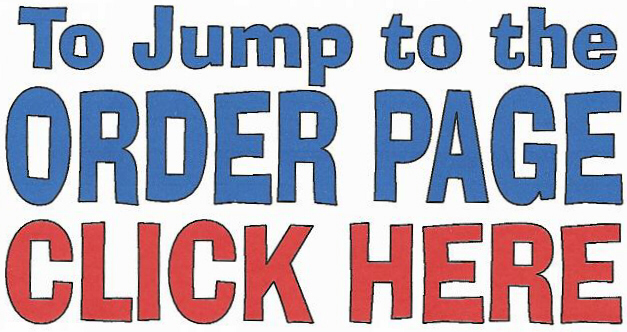|
|
|
Scope and Sequence of Subjects, Skills, Concepts, |
|||
|
BIBLE/CHARACTER TRAINING LANGUAGE ARTS Vocabulary and Spelling: Vocabulary words from reading and content-areas, Latin and Greek roots (suffixes and prefixes), Individualized spelling lists, Spelling rules and spelling words that apply to them, Content-area spelling words, Commonly misspelled words, Spelling words correctly in context, Recognizing misspelled words Writing: Summaries, Reaction paragraphs, Character studies, Dramatizing a story, Writing techniques, Using descriptive words, Note-taking, Rewriting passages, Types of paragraphs, Writing an essay, Combining sentences, Parts of a paragraph, Editing and improving a paragraph, Fundamentals of letter writing (parts of a letter, types of letters, writing letters), Paraphrasing, Writing questions for an interview, Conducting an interview, Using the interview to write an essay, Writing poetry, Writing a biographical sketch Language: Antonyms; Synonyms; Punctuation; Capitalization; Sentence structure; Types of sentences; Study and research skills (dictionary, encyclopedia, and thesaurus); Library Skills (Dewey Decimal System, arrangement of books in library, call numbers, using the library, author-title-subject cards); Editing practice; Correcting spelling, grammar, capitalization and punctuation errors in sentences; Speech; Drama; Grammar; Subjects (singular and plural, simple, complete, compound), Predicates (simple, complete, compound), Parts of speech, Nouns (singular, plural, compound, proper, common, abstract, concrete, collective), Pronouns, Verbs (action verbs, linking verbs, verbs and their tenses, singular and plural verbs, subject-verb agreement, helping verbs, irregular verbs, gerunds, participles, infinitives), Adjectives (articles), Prepositions (prepositional phrases, objects of prepositions), Coordinating conjunctions, Adverbs, Interjections, Direct objects, complements, Indirect objects, Antecedents (agreement between the antecedent and its pronoun) SOCIAL STUDIES Includes: Famous people and places, Historical writing and language, Recreation, Food, Clothing, Timelines, Religious beliefs, Trade and business, Trade organizations, Transportation, Social Classes, Weather and climate, Imports and exports, Festivals and celebrations, Myths and legends, Wars and military techniques, Dramatic arts, Government and rulers, Political systems, Cities, Legacies and appreciation of cultures, Family life, Building and crumbling civilizations, Banking and industry, Trends and traditions, Health and sickness, Farming and agriculture, City and country life, Renaissance and Reformation in Europe (Italy, Germany, Switzerland, France, England, Spain, Portugal, The Netherlands), Reformers and their followers, Tribes and dynasties, Inventors and inventions, Explorers throughout world history, Interaction between the countries of the Old World, Aztec Empire, Mexican culture, Inca Empire, Race for a water route through the Americas to China, The Northwest Passage, Interpreting charts and graphs, World Geography, Maps and map skills, Geographical facts and features, Making dioramas, Weather and climate, Natural resources SCIENCE Desert/Nile River: Biomes, World desert regions, survival of desert plants and animals, ecosystems, conservation, energy sources, erosion, science in ancient Egypt, Desert booklet Human Anatomy: Human body systems, Science of ancient Greece, Food pyramid, Health and hygiene, First aid project Geology: Types and characteristics of rocks and minerals, Structure of the earth, Elements, Fossils, Paleontology, Rock formations, Caves, Science of ancient Rome, Earthquakes, Volcanoes, Rock collection Botany: Plants and their uses, Classification of plants, Flowering plants, Germination, Photosynthesis, Plant reproduction, Seed dispersal, Ferns, Mosses, Gymnosperms, Water movement and respiration in plants, Transpiration, Evaporation, Leaves, Veination, Roots, Stems, Unusual and exotic plants, Plant biomes, Science in the Middle Ages, Planting and Using herbs Astronomy: Astronomy throughout history, Galaxies, Earth's rotation and revolution, Planets, Moons, Stars, Space observation, Satellites, Space travel, The Space Age, NASA, Science and scientists of the Renaissance period, Planetarium field trip Oceans: Sea creatures, Ocean landscapes, Seashore, Tides, Currents, Waves, Islands, Coral, Ocean barriers and ridges, Icebergs, The experimental method, Ocean transportation, Buoyancy, Gifts and legends from the sea, Protecting the oceans, Aquarium field trip, Ocean project FINE ARTS Projects: Models, Drawing and coloring, Relief, Pottery, Paper-maché mask, Listening to Handel's Messiah and Beethoven's "Moonlight Sonata," Eggshell mosaic, Whittling, Medieval music, Calligraphy and Illuminations, Designing a family crest, Printing project, Painting project, Designing a game, Art museum field trip, Ocean craft project, Shell craft project, Illustrating poetry
|
|||

